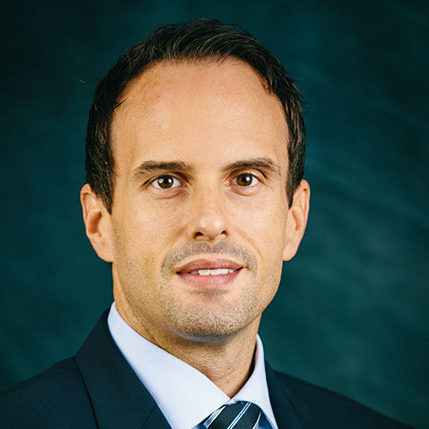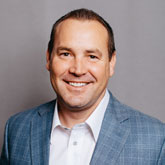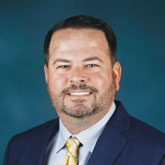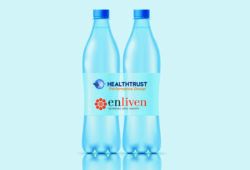AdvantageTrust helps keep members prepared for a changing market
Patients have historically received surgical care within the setting of a hospital. However, advances in medical technology and innovative care delivery models are changing that. Techniques, instrumentation and some implant advances have enabled physicians to safely perform specialty procedures traditionally only performed in the hospital setting in ambulatory surgery centers (ASCs).
The shift means that ASC staff now face the cost management pressures that come with the costly medical devices and technologies (e.g., implants and robotics) needed for orthopedic and spine procedures in the nonacute space.
AdvantageTrust, a division of HealthTrust that works with doctor’s offices and nonacute surgery centers to help navigate the group purchasing organization (GPO), is helping members structure the agreements in this space to find the best value—a service that is particularly important during this time of evolving care models.
Impact on the ortho space

“COVID was the primary catalyst for the accelerated migration and expansion to the ASC,” says Brent Ford, Clinical Director of Medical Devices at HealthTrust. During the pandemic, hospitals needed to focus on higher acuity procedures, so ASCs were adapted to take on a broader scope of cases. Today, it’s standard practice for surgeons to perform a broad range of musculoskeletal procedures in the nonacute ASC, including total joint replacements and orthopedic and spine surgeries.

Proponents of the shift in care suggest that having a procedure in an ASC is arguably a better patient experience because patients value the convenience and not having to spend time in a hospital setting. There is also less chance of infection. As ASCs make advances in enabling technology such as robotics, Chris Stewart, VP of Medical Device Management for HealthTrust, believes that physicians will do more dynamic surgeries in this setting.
Reimbursement for surgical procedures performed in an ASC is typically 30%–40% less than what it would be for the same procedure performed in a hospital.

However, physicians have the opportunity to make more money by taking whole or partial ownership in many surgery centers, says Scott Driskell, Clinical Director of Medical Device Management. “Physicians are moving procedures from the acute care space, where they’re reimbursed a set fee, to the nonacute space, where they potentially have some ownership, and their reimbursement is often higher.”
Physicians can negotiate with medical device suppliers for optimal pricing on implants and technology. Because surgeons get a share of the total reimbursement, not just their fee for service that they receive in the hospital setting, they have the potential to earn more.

“In a hospital, which is a traditional fee-for-service environment, physicians are typically not aware of nor do they care about cost,” says Adam Bruggeman, M.D., Chief Medical Officer at Physician Surgical Network Affiliates, spine surgeon and HealthTrust Physician Advisor. But with the shifting care model, physicians can make better-informed decisions, he adds.
The importance of physician alignment
“There is a lot of emotional attachment around products,” says Dr. Bruggeman. A physician may have been involved in designing the implant. Or they may have established trust with someone who works for the implant company and want that individual in the OR.
But if the physician has ownership in an ASC, it becomes a different scenario. “They’re making switches they never made before,” he adds.
No matter the reason, physician alignment on lowering unnecessary variation and value-based care is a welcomed evolution. Suppliers have responded to the care model shift by working with physicians at ASCs to bundle technology and implants for better pricing and higher profitability. Whereas new equipment used to be a capital purchase, suppliers now offer creative payment solutions such as leasing, software-as-a-service payments and pay-as-you-go.
Manufacturers are also creating less expensive, enabling technologies that perform the same functions as much more expensive models. “Suppliers now have smaller robotic platforms that navigate implants to their intended location, augmented reality technology that provides surgeons with image overlays to guide their actions, and options for more minimally invasive procedures, resulting in smaller incisions, quicker recovery times, reduced pain and shorter facility stays,” explains Ford.
How AdvantageTrust helps
“At AdvantageTrust, we work with our members to find ways to stay ahead of the care model shift from a contracting perspective,” says Brennan O’Brien, VP of Supply Chain and Business Development for AdvantageTrust. Sourcing models that work well in hospitals don’t always work in the nonacute space. Rather than contract by category, small ASCs bundle many of their products together, which differs from traditional sourcing practices. “We help facilities figure out how to work with suppliers and bring contracting value to the procurement,” he adds.
Data experts from AdvantageTrust work with a healthcare facility by setting up a data flow of their spending into an actionable online dashboard. Savings opportunities are presented and reviewed with the health system every quarter. AdvantageTrust provides recommendations based on the American Joint Replacement Registry, a repository of orthopedic cases where surgeons report their case utilization. “We can look at their utilization for a specific product and tell them whether it’s outside the norm, and if they’re getting a higher cost, we show them the savings opportunity,” explains Driskell. “Regardless of size, every surgery center has an opportunity for cost savings.”
Hundreds of thousands to millions of dollars may be saved, depending on the organization’s size. The AdvantageTrust team coordinates with the ASC’s sourcing team to ensure they understand what is needed in negotiations.
Every year, new procedures are approved to be performed in ASCs, and the market continues to change as well. The AdvantageTrust team is poised to help members stay on top of it all.
For more information, contact your HealthTrust Account Manager or visit Medical Device Management.
Share Email ASCs, Medical Devices, Q1 2024, Robotics





